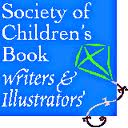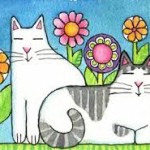Although many authors hear about Young Adult fiction (YA) as being hard to break into, you’d never know it from the numbers of manuscripts I see. When I help writers with YA or middle grade (chapter) books, I see certain mistakes again and again. And I should confess, YA is one of my favorite kinds of books to read.
Writing Tip for Today:Writing for children is different from writing about children. Many writers have a young protagonist but the subject matter or treatment of the story is not kid-friendly. Here are some other common mistakes:
- How Long is Long Enough? Writers who claim to have written a children’s book often have no clue about length. Many so-called chapter books for middle grade readers are 80 or 90 thousand words. Learn the guidelines by reading what’s new on the shelf as well as guidelines set forth by children’s writer associations such as SCBWI. Most YA novels come in around 40-65K. And no fair trotting out the “Harry Potter” excuse. Most new writers can’t hold a reader’s attention for 800 pages.
- Child Characters Need Real Voices. One of the trickiest areas of writing can be with child characters. Whether your story is aimed at kids or simply contains child characters, kids must be believable. This means learning to write authentic kid-speak. Aside from word-choice (more than a few three syllable words and the reader starts to get suspicious), kids tend to speak in short sentences, use a lot of body language and care about different things than adults. Practice eavesdropping on kid conversations–for many kids, the world is no longer an innocent “Rebecca of Sunnybrook Farms” place.
- Subject DOES Matter. One of the ways middle grade fiction is different from YA is in the characters’ world view. In middle grade work, the protagonist is often consumed with fitting into a whole community, being part of the gang. By young adult ages, readers identify more with stories about setting themselves apart from the group, going out on their own or defying convention. And how do you know if a novel is for a young adult audience rather than adult? At the risk of sticking my neck out, I’d say that certain themes or treatment of themes (such as erotic or uber-violence) might be less disturbing for an adult audience. But all you have to do is look to the classics (Lord of the Flies, anyone?) for themes that are anything but gentle. In my experience, YA novels seem to have fewer POV shifts and concentrate more fully on one character.







Thanks, Linda, for sharing this information! I found that after trying to write for adult and then YA, I definitely fit in the MG department! LOVE writing for that age, with those young teen characters!
Great example of finding your niche, Cheryl! I’m excited about your Pineapples in Peril book! ~Linda